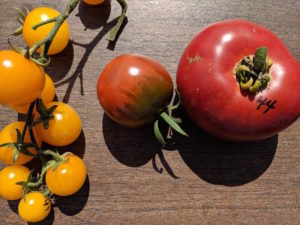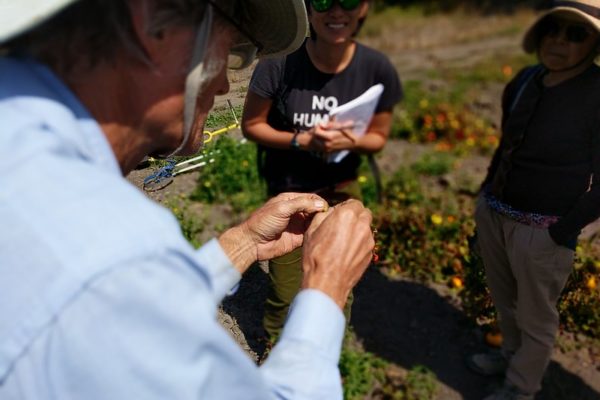
Thanks to everyone who made it out to our organic research field day on Sept. 29th in Pescadero, CA, with OSA’s Steve Peters. The day featured vegetable seed production under dryland farming conditions, and featured beans, peas, tomatoes, kohlrabi, and summer squash. Participants also learned about our tomato dryland breeding project, now in its third year. OSA is working to help farmers grow tomatoes with exceptional favor while conserving precious water resources.
Our dryland tomato breeding project is evaluating new tomato breeding populations grown under dryland conditions with limited irrigation. These population came from new crosses that Steve Peters and tomato breeder Kanti Rawal made to combine eating quality and field performance traits — such as yield and stress tolerance — from different parents. These populations continue to be selected under dryland farming conditions and shared with farmers who will be encouraged to make additional selections on their farms. Starting next year, thanks to support from the Ida and Robert Gordon Family Foundation, we are collaborating with the Dry Farming Collaborative by exchanging seed and farming knowledge with researchers and farmers working on the development of dryland farming systems in Oregon. If you are a farmer interested in participating in this project, contact Steve Peters.
Be sure to join our mailing list for results from this and other research projects.


